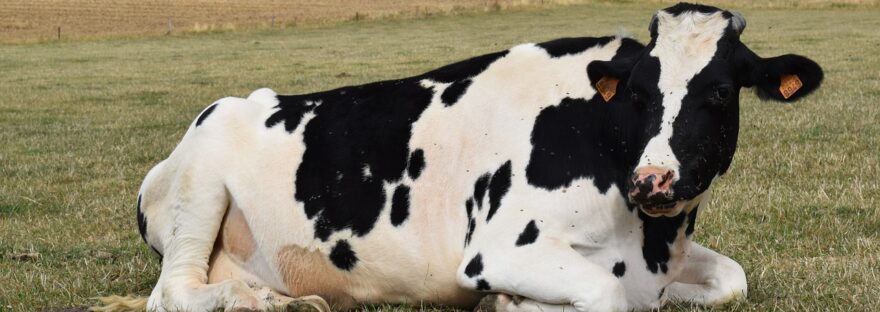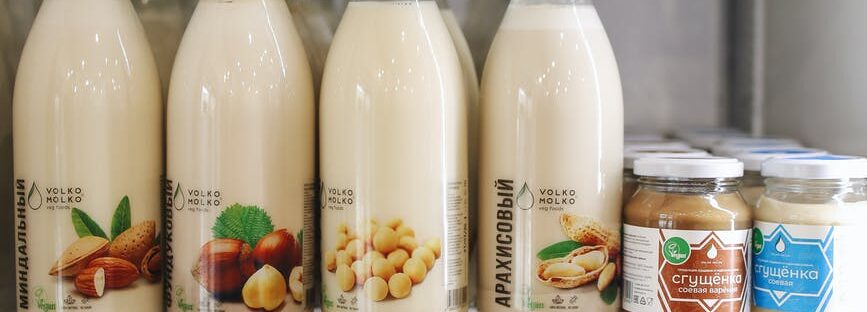It’s an unfortunate reality that our modern lifestyle exposes us to many possible cancer causing things daily. My intention with this article is not in any way to cause fear. This is simply to raise personal awareness and challenge some of our perceived norms. I’m here to provide information; what someone chooses to do with that information is entirely up to them. My hope for you is to learn something new here today or at the very least challenge your own view/beliefs and cultural norms related to dairy products. Because when we stop talking about issues we can become complacent and start to pretend they aren’t there. And I love talking about food. ????
Quick note about me
I’ve mentioned before that I was lacto-ovo vegetarian for almost a decade before finally eliminating eggs and then dairy products from my diet. The decision to eliminate both of those products was very personal and caused a lot of internal reflection as well as research- not only to understand the nutritional implications, but also the environmental, animal-welfare, and potential long-term health effects. A lot of my decision was based on the environmental and animal welfare aspect of this topic. Nutrition was somewhat easy for me because the alternative products on the market today taste good, can provide similar nutrient profiles, and are accessible to me (not only because I’m a Dietitian). I recognize that I’m fortunate and privileged to be able to say that; not everyone is.
Dairy products can be part of a healthy diet. If you’re debating your milk stance I recommend reading my article Dairy Dilemma to get a little more background on dairy and how it can fit into a healthy diet. The article also discusses alternative dairy products and a brief explanation related to living a vegan lifestyle.
Quick thoughts on The PCRM
Several studies have linked the consumption of cheese and dairy products to an increased risk of breast cancer. On September 22, 2020 The Physicians Committee for Responsible Medicine (PCRM) filed a lawsuit against the Food and Drug Administration (FDA) because of the FDA’s failure to respond to their petition asking for a warning label to be added to dairy cheese products.
To be fully informative I think it’s important to point out that The PCRM is not what it sounds like from their name. At their core they are an animal activist group, not necessarily a collection of Medical Doctors. There is a lot of much information out there both for and against this group.
Rather than focusing on one group we should focus on what the science tells us so far and where we are falling short. I also think it’s worth mentioning that many groups, businesses, and the like have colorful pasts. But that doesn’t mean that they can’t or don’t contribute useful insight and information. Many of the nutrition handouts available on The PCRM website are full of helpful, evidence-based information.
What some of the science says
According to the authors of several studies, insulin-like growth factor (IGF-1) and other growth hormones may be responsible for the increased incidence of breast cancer in women consuming the most cheese. It’s well established that following a vegetarian diet pattern is associated with lower risk of many chronic diseases, including cancer.
This study, published by Loma Linda University Adventist Health Sciences Center, found that dairy milk consumption could increase women’s breast cancer risk up to 80% depending on how much they consume. This study evaluated the dietary intake of almost 53,000 North American women who were all initially free of cancer. Study participants were followed for ~8yrs during which time they were required to complete food questionnaires and diet recalls. Participants also completed a baseline questionnaire to provide information related to their demographics, family history, alcohol consumption, and other factors that the authors deemed relevant for the purpose of the study. Researchers found that consumption of dairy foods was associated with an increased risk for cancer. The data collected also predicted a marked reduction in risk associated with substituting soymilk for dairy milk.
Possible explanations
The main author, Fraser, went on to explain that possible reasons for these associations between breast cancer and dairy milk may be the sex hormone content of dairy milk. The female cows producing the milk are lactating, and often about 75% of the dairy herd is pregnant. Breast cancer in women is a hormone-responsive cancer. Intake of dairy and other animal proteins in some reports is also associated with higher blood levels of a hormone, insulin-like growth factor-1 (IGF-1), which is thought to promote certain cancers.
“Dairy milk does have some positive nutritional qualities,” Fraser said, “but these need to be balanced against other possible, less helpful effects. This work suggests the urgent need for further research.”
The Canadian Academy of Sports Nutrition raises several good points related to hormones and antibiotics in our food. Specifically they point out that some protein hormones given to cattle are water soluble. During digestion, your stomach would break down any consumed, water-soluble proteins.
However, the use of protein steroids is different. Steroid proteins are fat soluble. They can remain intact even with heat applied. They can even survive stomach acid! Potential risk of cattle and cow products treated with steroid hormones then causing changes to the human consuming them has room to be further studied. Because there is a lack of strong, reliable data this topic is pretty controversial. There is data supporting all sides of the argument, and no firm stance established by the professional Dietetics or Medical Community (that I was able to find anyway).
What now?
I have to agree with Fraser- dairy milk does have some positive nutritional qualities like protein, carbohydrates, and vitamins/minerals. But don’t we have a right to further investigate possible links between our food supply and rates of cancer? To understand the possible long-term effects of our food choices? Do you think certain foods should have a warning label? We put warnings on alcohol and cigarettes, should food be different? The Surgeon General warnings are there to raise awareness. Adding a warning label to certain foods might also help consumers make informed choices based on their own personal risk factors.
Every day it feels like we’re reading headlines stating that another study has found higher incidents of cancer in today’s youth compared to 50 years ago. The more solid scientific research we have related to hormones in the food supply, the more educated and evidence-based our food choices become.
Further Reading
Physicians Committee for Responsible Medicine (PCRM)- Let’s beat breast cancer
Winchester Hospital- Controversy over added hormones in meat and dairy


